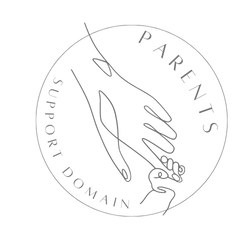The Impact of Sleep Apnea on Pregnancy
The Impact of Sleep Apnea on Pregnancy: How CPAP Can Help
Expectant mothers know how important it is to monitor their health during their term. They’re not looking after just themselves, after all, they’re also looking after the wellbeing of their unborn child.
However, certain health conditions can catch up on their bodies during this vulnerable stage of pregnancy—with one notable one being sleep apnea.
Sleep apnea is a prevalent sleep disorder that occurs when soft, fatty tissue obstructs the windpipe and blocks the healthy flow of air, causing breathing difficulties. This causes frequent stops in breathing during slumber, which can deprive a person of oxygen.
On its own, sleep apnea is a debilitating condition that can cause feelings of grogginess and lethargy during the daytime. However, if you’re carrying a fetus, the risk can be even more pronounced.
Fortunately, there are sleeping aids called CPAP masks that can help you overcome this problem. This makes quality sleep a more achievable goal.
Let’s look into the impact of sleep apnea on pregnancy, as well as uncover the best ways pregnant women can go about treating it.

What Are The Signs of Sleep Apnea?
One of the most common—if not the most common—sleep disorders around is obstructive sleep apnea (OSA).
Obstructive sleep apnea is characterized by a partial or complete collapse of the upper airway, resulting in diminished oxygen saturation.
This condition is difficult to spot at first since you’re not exactly awake when it happens, but there are some symptoms you can notice in your waking life that may indicate the presence of this condition.
That said, you can always have your partner observe your sleeping habits so that you can get a better glimpse of your health.
Here are the signs you should watch out for:
- Loud snoring
- Abrupt arousal
- Gasping for air
- Irritability
- Morning headaches
- Daytime sleepiness
For pregnant women, the symptoms of sleep apnea are the same. However, mood changes and high blood pressure may be more pronounced in these individuals.
If you suspect that you have signs of sleep apnea, get in touch with a medical professional to diagnose and treat your condition.
Sleep Apnea and Pregnancy: The Causes
Sleep apnea affects over one out of four pregnant women, making it a fairly widespread phenomenon among the pregnant demographic.
Furthermore, pregnant women tend to be more at risk of developing sleep apnea, especially if they’re diagnosed with other health conditions such as obesity beforehand.
That said, there are several other reasons why pregnant women are at heightened risk of developing sleep apnea compared to non-pregnant women.
The first reason is the hormonal changes a woman undergoes during pregnancy. As more hormones get produced in the female body, the more likely it is for your nose to produce mucus. This can make affected women feel more congested, which can lead to sleep apnea.
Secondly, excessive weight gain caused by both the growing fetus and increased food intake can apply pressure on the airways and lungs. This can cause difficulty in breathing which could lead to sleep apnea.
The tendency to not lay on one’s backside during pregnancy can also lead to an increased risk of sleep apnea.
With all these factors in mind, it’s important to mention that sleep apnea symptoms can improve postpartum, but that’s not always a guarantee, especially if other health conditions are present.
Talking with a qualified medical professional is the best course of action if you’re still struggling with symptoms after pregnancy. This is especially true considering the risk having untreated sleep apnea entails on a person’s body.
Risks of Sleep Apnea on Pregnant Women and Babies
From sleep deprivation to intermittent oxygen deprivation, sleep apnea can have grave implications for both the mother and the child.
And these risks aren’t limited to feeling bad the next day. These risks can turn into long-term complications if left unchecked.
Here are the risks for both the mom and baby.
Mother Health Risks
When you’re struggling with chronic sleep apnea, your body is unable to get enough oxygen it needs to sustain itself optimally. This, when left untreated, can contribute to negative effects on the body.
For instance, mothers are more at risk of developing gestational hypertension and gestational diabetes if they have sleep apnea. There’s also an increased risk of labour problems, such as prolonged labour, unplanned C-sections, and preeclampsia.
Other health risks such as heart disease, depression, acid reflux, strokes, and asthma may also be more likely occurrences when a pregnant mother is dealing with obstructive sleep apnea.
Fetus Health Risks
The placenta normally transfers a healthy flow of blood to the fetus. When a mother is deprived of oxygen, it naturally follows that the fetus’s oxygen levels will also decline. This can have harmful consequences.
For instance, they can face a fetal growth restriction—a condition wherein the fetus doesn’t grow as big as the standard of their gestational age. Furthermore, it’s also common for the heart rate of the fetus to drop, a condition known as acidosis.
A mother’s lack of sleep can also lead to the diminished secretion of growth hormones into the womb. In worst-case scenarios, this can cause a premature birth or an early death.
How to Treat Sleep Apnea: Using CPAP Masks and More
Fortunately, these harms can be treated with the right tools and treatment plans. Treatment involves a combination of clinical assistance and lifestyle changes.
Be sure to talk with a doctor about your condition so that you can have tailor-fit treatment depending on your health and how far along you are in your pregnancy.
Here are some of the ways pregnant women can treat sleep apnea:
- CPAP masks: CPAP masks are medical masks that are connected to a special machine to promote the flow of oxygen-rich air in the airway. There are nasal pillow masks, nasal masks, and full-face masks that pregnant women can put on before bed every day. You can click here to find the right one for you.
- Improving your sleep position: Sleeping on your side can be beneficial for pregnant women as it helps alleviate sleep apnea symptoms by keeping the trachea open.
- Lifestyle changes: Maintaining a healthy weight through eating healthily and decreasing your stressors can help reduce the risk of sleep apnea from worsening over time.
- Avoid vices: Refrain from engaging in vices like alcohol, recreational drugs, and smoking when you’re pregnant and dealing with sleep apnea.
Besides the aforementioned treatment plans, surgery is an effective way to deal with severe sleep apnea, especially post-partum.
If you’re dealing with lighter symptoms like congestion, you can use saline sprays and saline rinses to deal with that.

